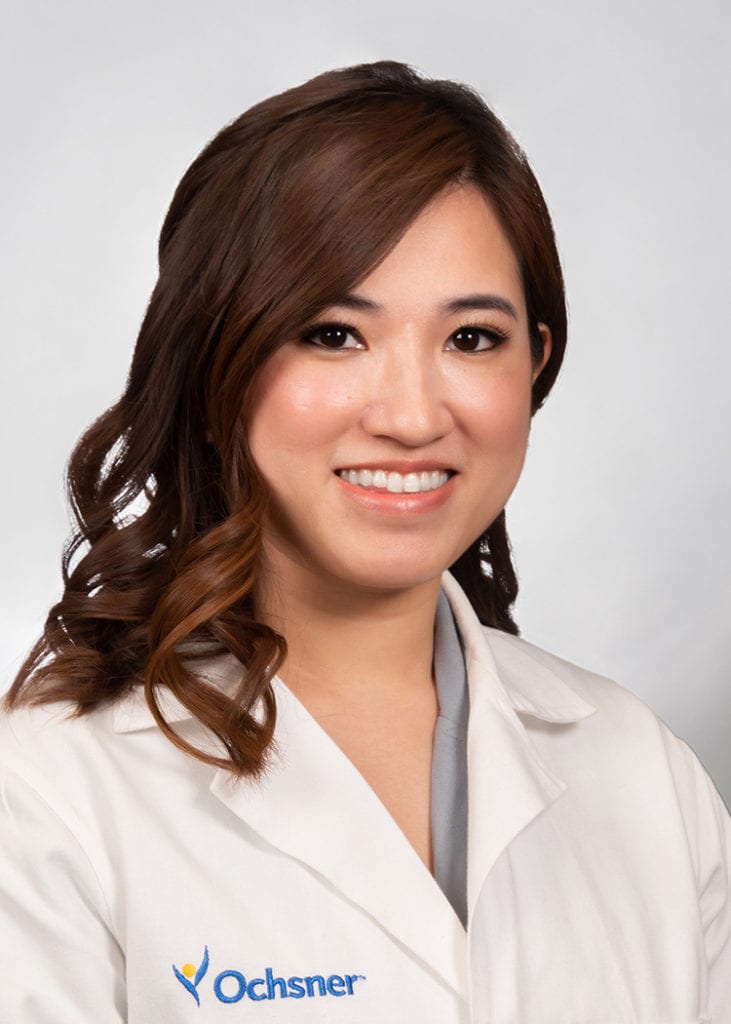Disclosure: This post is sponsored by Ochsner Health.
How To Treat Pregnancy Acne
 When you find out you’re pregnant, there are many things to celebrate. You will be
When you find out you’re pregnant, there are many things to celebrate. You will be
welcoming a new bundle of joy into your life, and you will start a chapter, unlike any other. However, there may be some side effects of pregnancy that you are not aware of, like pregnancy acne. Many women experience acne during their pregnancy, particularly in the first and second trimesters. When treating acne for pregnant women, it is essential to take in many considerations, as certain medications can have adverse effects on both mom and baby.
What causes pregnancy acne?
During pregnancy, you will experience hormone surges, including increased amounts of progesterone. These higher progesterone levels can lead to your pores producing more oil, which can cause your pores to build up bacteria and become clogged. Water retention is also very common for pregnant women, and increased body fluid can also lead to zits.
Are there skincare products and medications to avoid during pregnancy?
Product and medication safety can vary widely depending on the formulation and dosage, so it’s essential to speak to your doctor as soon as you find out you are pregnant to determine the best course of action for your health and the health of your baby.
There are a few acne or skincare products and medications that pregnant women should avoid:
- Retinoids – Vitamin A is found in retinoids, and too high amounts of vitamin A can cause fetal development problems, including birth defects. Ingredients on the product may be listed as retinoic acid, retinyl palmitate, retinaldehyde, adapalene, tretinoin, tazarotene and isotretinoin. They are also found in prescription medications Tretinoin and Retin-A cream.
- Tetracycline – Products containing tetracycline can damage a pregnant women’s liver and cause discoloration in her growing baby’s teeth. Tetracycline can be found in antibiotics doxycycline and minocycline, which can be used to treat acne.
- Hydroquinone – Skin-lightening products used to treat chloasma and melasma, which can cause dark patches of skin that sometimes develop during pregnancy, can contain hydroquinone. Since this medication is absorbed through the skin, there could be unknown effects on your baby.
- Botulinum toxin – Often found in products like Botox to treat wrinkles, there have not been enough studies to determine if there are adverse effects of botulinum toxin on fetuses. Therefore, it is recommended to avoid this product.
- Oxybenzone – Certain ultraviolet filter sunscreens can contain oxybenzone. This product is useful for skin protection, but it can distribute endocrine-producing chemicals, affecting hormone levels, and cause damage to mother and baby.
What are some steps to take to reduce acne during pregnancy?
- Wash your face consistently – Try washing your face morning and night with a mild cleanser and warm water. Be sure to clean areas like your hairline and jaw, where pores tend to clog. Avoid abrasive scrubs, which can strip your face of its natural moisture. Be sure to use clean towels when drying your face.
- Drink plenty of water – It is recommended that pregnant women drink at least 10 8-ounce glasses of water a day. Not only is it essential to keep you and your baby hydrated but drinking plenty of water can also help flush out your skin and keep it moisturized and clear.
- Eat healthily – Avoid foods high in sugar and saturated fat. Consuming large amounts of sugar and saturated fats is not only bad for your health but can also increase acne. Try eating whole grains and healthy fats, such as salmon or avocado. Additionally, try to eat foods rich with vitamin A, such as dairy products, fish, broccoli and carrots, to name a few. Vitamin A can help skin breakouts and helps naturally moisturize your skin.
- Consult your physician – If you want to try out a new product, consult your dermatologist or OB/GYN to ensure the product is safe for both you and your baby.
When you become pregnant, be sure to review your skincare regimen’s ingredients and discuss any questions or concerns with your physician.
Schedule an appointment with Dr. Jessica Chu HERE.
About the Author


She went on to LSU where she graduated summa cum laude with a Bachelor of Science degree in Biological Sciences and minors in Chemistry and Psychology. She then went to LSU Health Sciences Center in New Orleans for medical school where she was elected into the Alpha Omega Alpha Honor Society for being among the top in her class. Upon graduation, she was the recipient of the Henry W. Jolly, Jr. Award for outstanding dermatology student. She completed her internship at LSU-Baton Rouge Internal Medicine. She then completed her residency training in dermatology at LSU Health Sciences Center in New Orleans/Baton Rouge where she was fortunate to be mentored by many exceptional medical and cosmetic dermatologists in our community.
Dr. Jessica Chu practices at Ochsner Medical Center – The Grove, and practices the full range of medical, surgical and cosmetic dermatology and treatments for all aspects of the skin, hair, and nails for adults and children. She specializes in the prevention, detection and treatment of skin cancer as well as other skin conditions such as acne, atopic dermatitis, and psoriasis. She strives to provide her patients with the most up-to-date, evidence-based data on dermatological diseases and treatments by continuing her education through the American Academy of Dermatology and places a strong emphasis on patient education. Dr. Chu is also passionate about cosmetic dermatology. She provides state-of-the-art dermatological procedures, including dermal fillers, neurotoxins, and medical-grade chemical peels. She values an artistic and elegant approach for aesthetic enhancement, working with the natural anatomy of the human face and body to provide beautiful natural results. In her spare time, Dr. Chu enjoys spending time with her family, exploring new cooking and baking recipes, and cheering on the LSU Tigers!















